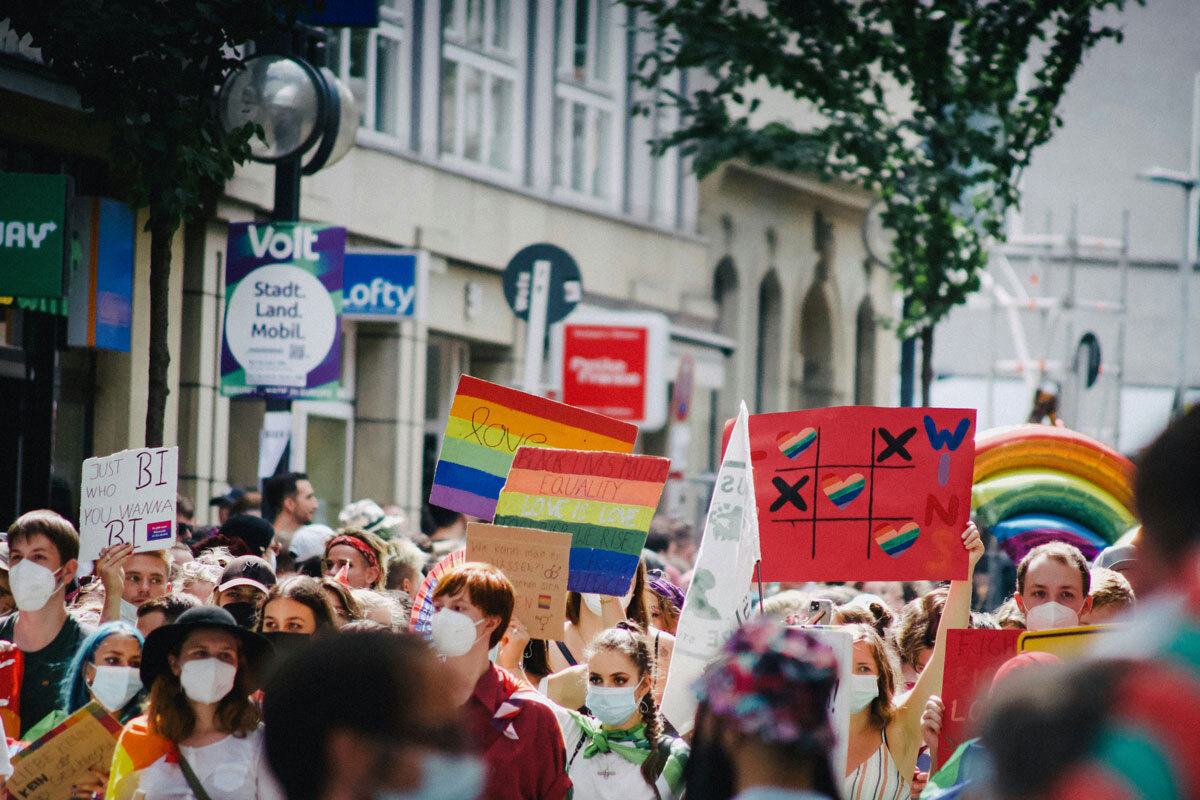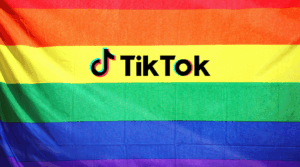The fight to extend civil rights for the LGBTQIA+ community in the United States has been long and arduous. In 2003, small waves of equity washed over the country. Massachusetts became the first state to legalize same-sex marriage. Similarly, California allowed for domestic partnerships, though those did not hold the exact same privileges as a civil marriage.
The tides of advancement did begin to recede, despite the progress that had been made. In 2008 Florida, Arizona, and even California’s constitutions enshrined a ban of same-sex marriage in their constitutions. It wasn’t until 2015 that the Supreme Court passed a federal law through the Obergefell v. Hodges case that opened the door for marriage for all.
The sea of change ebbs and flows
In the past six years, there’s been more push back against the LGBTQIA+ community as a whole. Parties that hold more conservative values, put forward approximately 1,200 anti-LGBTQIA+ bills in various state legislations, albeit not all were passed. The laws span from education to healthcare. They included “forced outing”- meaning teachers would have to report to parents if students changed their pronouns or gender expressions, and barring access to gender affirming care.
While on a federal level President Biden signed an executive order to extend the 2020 case Bostock v. Clayton County to additional sectors, it was never codified by Congress. The case stipulated that within their employment, citizens cannot be discriminated against regarding their sexual orientation or gender identity.
In Washington State a Parental Bill of Rights became law this past summer. Morley Spencer, 35, and an educator in the greater Seattle, sees that law a source of concern. “Parents feel as though they have the need to opt their children out of important health lessons regarding identity and puberty.” She hopes that “kids who are exploring how and who they want to be in the world can do so without fear of negative repercussions because of the person that they are.”
Conservative politicians claim that they are protecting children, yet they have the opposite effect. The American Psychological Association found that according to a survey conducted by The Trevor Project the current political climate has made the mental health of 90% of LGBTQIA+ teenagers decline. 39% of youth deliberated on ending their life.
In light of these laws, many families are considering moving to safe-haven states, such as Minnesota, to support their children.
The murky waters of ignorance
The aforementioned laws coincide with a flood of LGBTQIA+ book bans, including Gender Queer, Tricks, and All Boys Aren’t Blue, in multiple school districts and public libraries. Between 2014 and 2023 there was a staggering 2,117% increase in overall bans. It went from 183 in 2014 to 4,240 in 2023. Together, with BIPOC titles, LGBTQIA+ children and youth literature made up 47% of those bans. An issue that Spencer has encountered firsthand:
Parents pass judgement about me or question my ethics, especially when I teach content related to LGBTQ+ youth, families, identity, etc. I have had parents concerned that I am trying to “influence” their child to be gay or trans, or question why I am reading picture books about trans children.
Research suggests though that those fears are unfounded. Literature does not manipulate children, but can actually be a tool to teach empathy and provide vital representation. The International Literacy Association states that in a study published in 2024 involving schooling for gender-nonconforming and LGBTQ+ children and youth, researchers found that “an inclusive curriculum has the potential to ameliorate injustice for all learners.”
The study also references Rudine Sims Bishop, the 2020 Distinguished Scholar Lifetime Achievement Award recipient, who said,
…LGBTQ+ children’s literature provides spaces for queer voices and reinforces self-worth. …[T]hese texts may expose children to more inclusive and accurate accounts of history, promote acceptance, and help these young readers have a more accurate understanding of LGBTQ+ communities.
The mirage of save havens
In a hetero-normative society that turns personal lives into political battlegrounds, it can be difficult for LGBTQIA+ members to know who they can come out too without retribution. Or even how family members will react.
Nannah Myers, is a 28-year old PhD-student at the University of Montana. She says that even though she slowly began coming out in 2020, that she is:
…not fully out to all of my friends, and even some of my family members, but I do so as it becomes more necessary or when I feel safe to do so.I know pretty much everyone says this, but you’re never fully ‘out’ since we live in a society that centers heterosexual couples, and the current standard is to assume people are straight until they say otherwise.
Similarly, Spencer remarked that while she can be open with her students that she is married, being one of the only openly gay teachers at her school in a more conservative district can be a challenge.
Both Myers and Spencer have acquaintances and immediate or extended family members that voted for president-elect Trump. Ultimately, Myers wasn’t “surprised by their decision” but couldn’t fathom why someone could vote to take away people’s human rights.
Unpredictable waters ahead
With president-elect Donald Trump’s win, the United States enters another term that may be fraught with hardships for the LGBTQIA+ community. It is clear that LGBTQIA+ youth fear has begun to rise. There was 700% spike of calls, texts, and chats made to crisis hotlines provided by The Trevor Hotline on November 6.
Myers encountered grief when she heard the news on Wednesday. “That morning, I cried, ate my breakfast, and drove to school to join many others in an attempt to continue on with their day as if something tragic with genuine consequences hadn’t just happened.” She also thought that “it was such a strange feeling to wake up knowing that so many people voted against their neighbors, friends, and family members.”
During his campaign, Trump’s team and Republican PAC’s spent roughly $21 million on anti-Democrat attack advertisements. This included the presidential race and Senate elections. They strongly targeted people who identify as transgender as well as other LGBTQIA+ individuals.
It is unclear what will unfold until president-elect Trump takes office. However, he does appears adamant on abolishing protections of transgender and LGBTQIA+ youths, and adults.
Ray of lights between the storm clouds
Though this last election saw a significant blow to the advancement and preservation of LGBTQIA+ rights, there were some momentous wins. Sarah McBride will be the first transgender woman serving in Congress after her win for the Delaware House seat. Tammy Baldwin will return to represent Wisconsin in the Senate.
On a state level, 37 legislatures saw LGBTQIA+ members join their ranks. This is an overall 1.1% increase in 2024 of people who do not identify as heterosexual or cisgender that ran for office in contrast to 2020. Reprsentative Zephyr was able to reclaim her seat in the Montana Legislature. This comes after her Republican colleagues had censored her back in 2023 for speaking up for trans youth. Hawaii, Iowa, and Missouri followed Montana’s lead and elected their first transgender representatives. Georgia and Wisconsin both saw their first LGBTQIA+ and black representatives elected with Rashaun Kemp and Amaad Rivera-Wagner, respectively.
Charting a way forward
The last two decades have shown that even if there is resistance, the course directs towards tolerance and equity. Though there are many uncertainties, the small oases people create for themselves can be a source of strength.
Myers she said she will continue to find joy in sailing, her work, and being a safe place for her students. She hopes “that community members will work to maintain safe spaces for everyone to exist in”, and said that, “At the lowest level of rooting myself in resilience, I feel like just continuing to exist authentically is important.”
On a personal level, Spencer shares anxiety surrounding the potential eradication of marriage equality on a federal level. She equally dreads that hate crimes against people of color could escalate again as they did between 2016-2019. Nevertheless she draws from the love and support of both her and her wife’s families, and attains calm and joy from the creation and experience of art.
And like many others, Spencer participates in activism as a way to maintain perseverance, “In the years of the last Trump presidency, I participated in many protests in Seattle, and while I know that protest can only take us so far, I know that standing up for what’s right, can give me some peace in my own mind and heart.”
Resources
If you or a loved one are in need of help or need someone to speak with, please consider these resources:
The Trevor Project: 1-866-488-7386 or text: 678-678
National Suicide Prevention Lifeline: 800-273-8255 or 988
Crisis Text Line: 741-741 (Text “Start”)
The LGBT National Hotline: 888-843-4564
Trans Lifeline: 877- 565-8860
The National Runaway Safeline: 800-786-2929
The True Colors United: 212-461-4401
Check out:







Be First to Comment